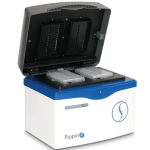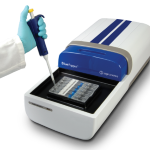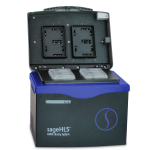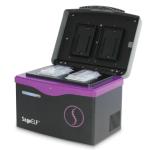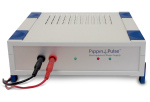A team of scientists from the Icahn School of Medicine at Mount Sinai, Weill Cornell Medical College, Cold Spring Harbor Laboratory, European Molecular Biology Laboratory, and other institutions published the first analysis of a diploid human genome produced by combining single-molecule technologies.
Lead authors Matthew Pendleton, Robert Sebra, Andy Pang, and Ajay Ummat, along with their colleagues, report that integrating results from different technology platforms led to significant improvements in contiguity, with scaffold N50 values nearly 30 Mb. The high-quality assembly also allowed the team to find complex structural variants that can’t be detected in assemblies produced from short-read data.
The scientists used SMRT® Sequencing from Pacific Biosciences as well as genome maps from BioNano Genomics. “Our work shows that it is now possible to integrate single-molecule and high-throughput sequence data to generate de novo assembled genomes that approach reference quality,” they report.
In the study, which sequenced the well-characterized NA12878 genome, scientists used BluePippin to perform size selection prior to SMRT Sequencing. By removing DNA fragments smaller than 7 Kb, the team generated extraordinarily long reads with the PacBio platform. “Without selection, smaller 2000 – 7000 bp molecules dominate the zero-mode waveguide loading distribution, decreasing the sub-readlength” that can be achieved with the sequencer, the authors write in the supplementary materials.
For more, check out the full paper here: “Assembly and diploid architecture of an individual human genome via single-molecule technologies.”
